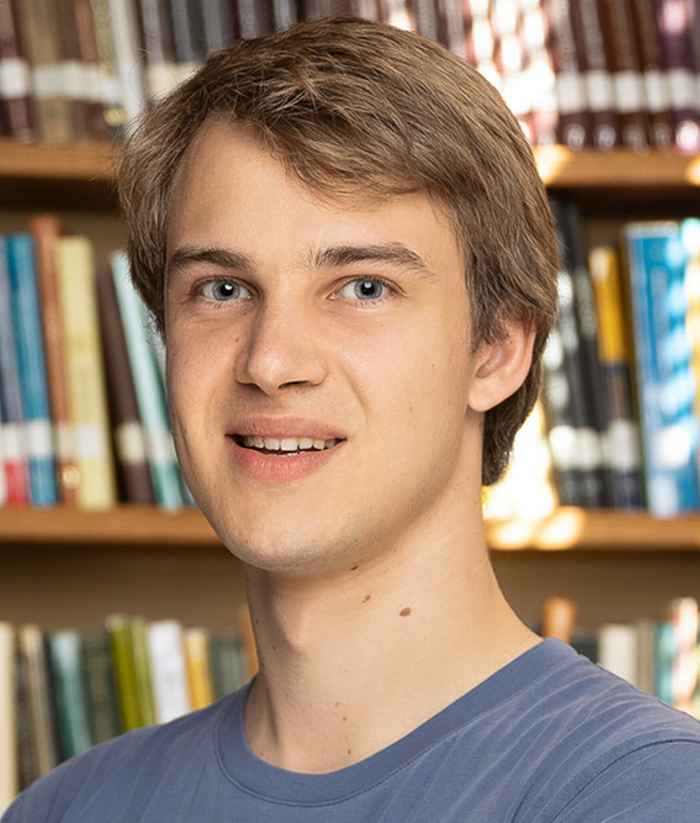UvA physicist Lorenz Eberhardt receives Gribov Medal
28 April 2025

The Gribov Medal, named after theoretical physicist Vladimir Naumovich Gribov (1930-1997) is an award for theoretical physicists under 35 years of age who have made outstanding research contributions. The prize was established in 2001, and is awarded by the European Physical Society every two years. The list of prize winners contains many names of physicists who have gone on to become leaders in the fields of theoretical particle physics and quantum physics.
Lorenz Eberhardt is currently an assistant professor at the University of Amsterdam. He obtained his PhD at ETH Zurich, after which he spent four years as a long-term postdoctoral member at the famous Institute for Advanced Study in Princeton. In 2023, Eberhardt joined the UvA Institute of Physics as part of an effort to attract young, talented researchers. He works on several topics in theoretical physics, specializing in string theory and quantum gravity.
Pushing the boundaries
String theory is a consistent framework that is in principle capable of describing all fundamental forces of nature in a unified way. While the theory holds great promise, its extreme mathematical complexity has long made it tough to explore. Eberhardt tackles this challenge by focusing on simplified versions of string theory where calculations become possible. He has developed innovative tools that push the boundaries of what scientists can compute. These new tools have allowed him to uncover surprising features of the theory, such as a direct understanding of the equivalence of string theory in highly curved spacetimes with much simpler physical systems — a striking example of what’s known as the holographic correspondence.
The laudatio by the European Physical Society states that the 2025 Gribov medal is awarded to Eberhardt “for his groundbreaking contributions to modern string theory, notably for the proof of the conjectured AdS/CFT correspondence in a tractable three-dimensional setting, for offering novel insights into the solution of three-dimensional gravity, and for achieving significant progress in the computation of string amplitudes.” The prize ceremony will take place on July 7th, 2025, in Marseille, France.